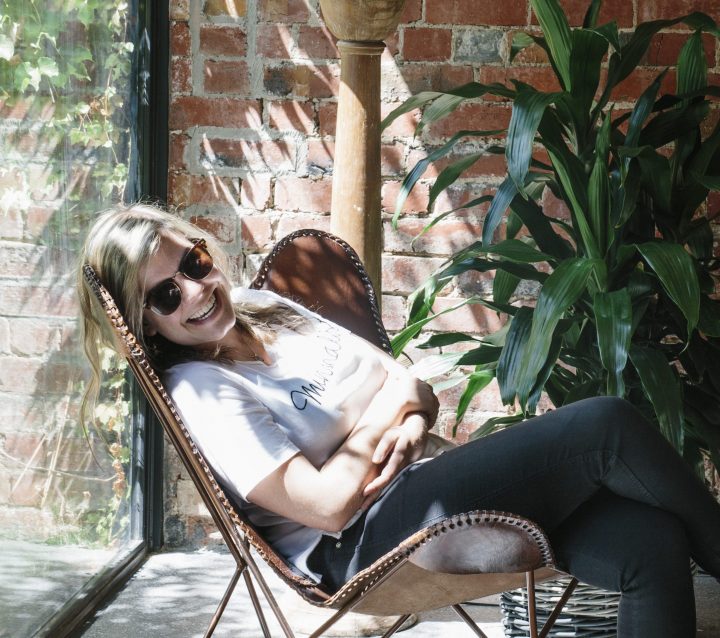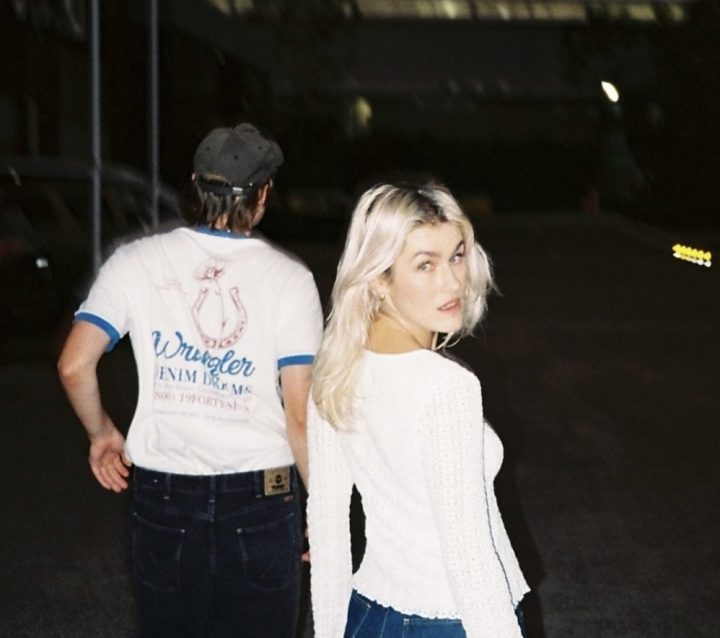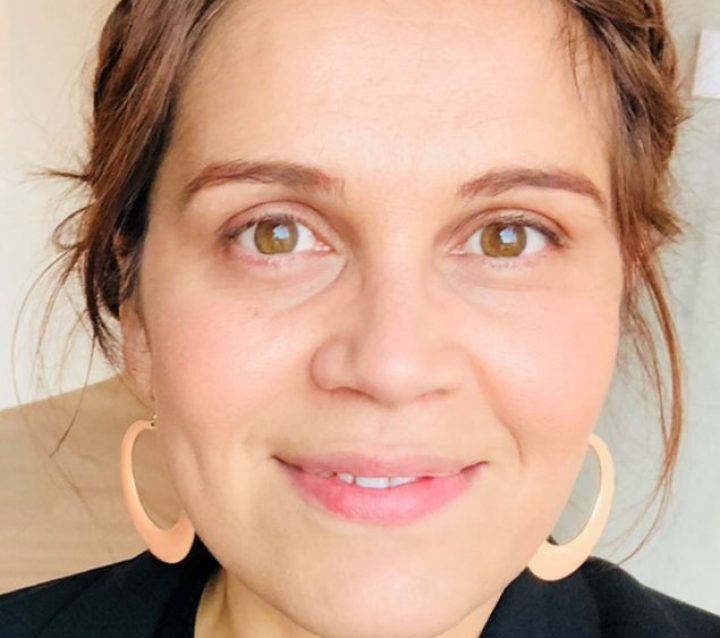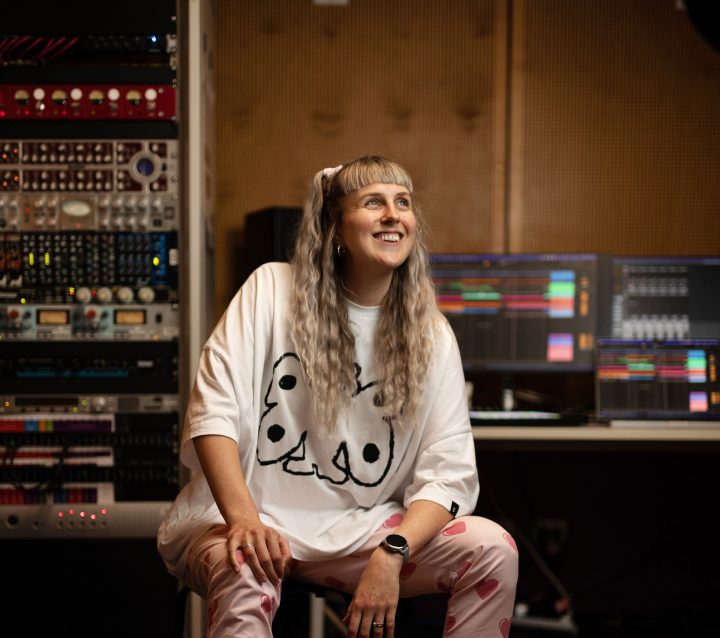
What is your current role and how long have you been in the position for?
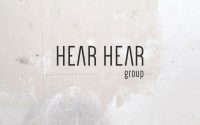
I’m a Music Manager and I became one in 2012 when I started managing Haarlo. I’m also a digital producer and creator of ideas and strategies for other various industries, this year all of my roles outside of management have been focused around music.
What is your current role and how long have you been in the position for?
I’m a Music Manager and I became one in 2012 when I started managing Haarlo. I’m also a digital producer and creator of ideas and strategies for other various industries, this year all of my roles outside of management have been focused around music.
For those who are unfamiliar, tell us a bit about what you do, what you work on, who you work with, and what your goals are.
I help facilitate the artistic and commercial vision of musicians. I work with Haarlo, Ainslie Wills, Gretta Ray and Angie McMahon. Artists write and record the music, fans engage with the music and I work on every aspect behind the scenes that starts with the artist writing and ends with the fan engaging. My goal is to be a part of something that has a meaningful impact on a global audience. I believe music can do this. My end goal is to be in a balanced position where I can also focus on myself and my own creativity – writing and creating.
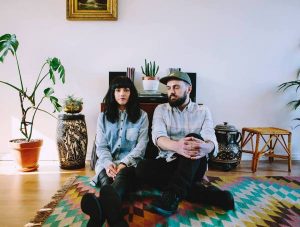 Haarlo
Haarlo
Describe a normal day in the life of Charlotte Abroms..
It’s so unpredictable and it varies so dramatically that I don’t think a ‘normal’ day exists for me at the moment, which I quite like. It certainly keeps things interesting. I’ll describe yesterday. Yesterday I woke up in Sydney and had a Skype call, then I went to triple j, followed by a long string of meetings, then I watched Angie McMahon play a gig at Brighton Up Bar before heading home! Throughout the day I had some good calls with Jono (while he was recording with Haarlo), Gretta and Ainslie. Right now I’m at the airport on my way back to Melbourne.
How do you unwind when stressed or tired?
Laughter is key. Nature is great. When I’m stressed it’s usually because I am overworked and I haven’t paid any attention to myself. Sometimes it’s about focusing on personal relationships, writing, reading, or focusing on a creative concept or idea. Sometimes it’s about going out to see a film or some comedy; something that doesn’t directly involve music. When your work is your passion, it’s everywhere, so it’s important to take breaks and remember to keep engaging with fields outside of music. Once I was quite burnt out without even realising it and that day I played in the park with my nephew for hours, that was the best de-stress I could have asked for. Nothing can be more important than holding that little dude’s hand while crossing the road. Thanks little man.
 Gretta Ray
Gretta Ray
How did you get your start in the music industry - what is your story of how you got to where you are today?
When I was 17 I started working at my cousin Craig’s acting agency, McMahon Management. He asked if I could help out with some graphic design, which is funny in hindsight because I agreed and I definitely didn’t know anything beyond MS Paint. I quickly became an agent there, which is not dissimilar to management but for actors. I didn’t do any graphic design. Then I started a website called Large Noises to combine a love of music, film and writing. I started this website with local musician Eliza Hull and music producer Jono Steer. We filmed bands we loved for free, with HD audio and visuals. Through this, I found myself offering advice to several of the bands we filmed who didn’t have management. Jono, who I worked with on Large Noises, plays in a band called Haarlo.
He showed me their first single Dreamlands and I said I’d help get the word out there. I sent it to Lizzy Plapinger and she added the song to a MS MR Mixtape alongside Aluna George and MØ. Enquiries started flowing in and (without really knowing it at the time) I became a manager. I booked their first single launch at Northcote Social Club and it sold out, I didn’t understand why that was so special at the time, but I do now. A few years ago I was at my cousin’s 1st birthday party and I met a friend of the family who also worked in marketing. We discussed how I was working towards my passion, to combine a love of music, digital, writing and film. She told me about a Melbourne tech startup that filmed and recorded high definition footage and audio of bands in real time. I met the team and they offered me a role producing content for alt-J and Atoms for Peace. Cut to: a few weeks later and I was at Roundhouse Camden working behind the scenes with the team and Thom Yorke, Nigel Godrich and Flea. It was all pretty surreal and definitely affirmed that the music industry was where I wanted to be. When my contract ended, I went back to advertising and made a decision to put all my energy (and money) into management. I did The Seed Fund and then I really gave it my all, which lead me to mentoring (and then managing) Gretta Ray and managing Ainslie Wills and now Angie McMahon. I attribute a lot of my journey to working with Jono Steer, Craig McMahon, Dominique McMahon, Liza Boston, Alex Boston, Barry Palmer and Michael Parisi. In a short period of time, these various people gave me the confidence boost I needed to go out on my own and give it a real shot.
Have you got any advice for people wanting to start a career in the music industry/doing what you do?
Ask questions. There’s no textbook for this industry, people are willing to give advice – especially managers, nurturing and helping comes naturally to managers. Asking questions and leaning on people for advice is paramount if you want to move quickly.
I learnt so much from just asking around. There’s no shame in being new to something, no one knew what they were doing when they started out.
Do you feel that higher education is necessary to establish a career within the Australian music industry?
Some of the most successful people I know who work in creative industries never went to university. Not everyone has the opportunity to go to university. I don’t think higher education is necessary for a career in the music industry – there’s no set criteria in this job, it’s often built on passion, instinct and self-taught skills. In saying that, I studied a Bachelor of Communication majoring in cinema and I’d say this was helpful to me when working in a creative field in general, mainly strengthening an already analytical brain. Through working in advertising I’ve learnt some unteachable skills that I would say compliment being a manager.
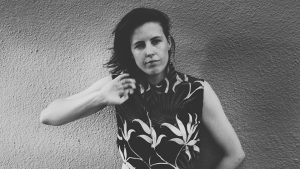 Ainslie Wills
Ainslie Wills
What tips would you give a young musician or artist trying to succeed in Australia? Is there a certain route they should take in order to be successful?
Be yourself and make music that you want to make. I’ve known so many musicians who try to follow a certain formula, the ones that have stood out to me most are always marching to the beat of their own drum.
Success is sometimes arbitrary, having confidence in your own art and skillset is surely the key to personal fulfilment. Trust your instincts.
What issues do you feel the Australian music industry is currently facing and how do you think these could be changed and improved?
I think managers need more support. I can see it happening now with bodies like the AAM doing fantastic things for Australian managers. Picture an industry full of sensitive, vulnerable and expressive people and then add financial pressures, long hours, late nights, early mornings, an overflowing inbox, tight deadlines, people contacting you across all hours, on weekends, via Skype, emails, text messages, Facebook messenger, and then working alone a lot of the time. Oh, and a whole bunch of people who have no idea what you actually do. It can be overwhelming, so it’s just about setting boundaries. It can take one negative conversation to throw everything off. As a manager it often feels like you’re in this by yourself, you give so much of yourself. I know a few wonderfully talented managers who have given up because they’ve been treated poorly and I get it. But I think if it was more acceptable to talk about our sensitivities and our weaknesses and the hardships of management, maybe if we supported each other more, those managers wouldn’t have given up. I joke about wanting to start something called “Management 9-5” – a movement which guides the industry to respect a manager’s personal space and encourages everyone to think about management like it’s a 9-5. It’s a funny contradiction because the one thing most managers are running from is a conventional 9-5, but then we all start craving structure. Talking is good, but finding solutions is better. I think we’re on the right path.
Have you had to overcome any challenges or adversity in your career, and if so how did you approach them?
I think I’ve always found people to be ageist, in most roles I’ve been in throughout my career. I’ve been told I’m an ‘old soul’ my whole life and then I’ve found myself trying to prove to people I’m not ‘too young’ to be in the position I’m in – both in music management and in advertising. The overall challenges as a music manager are daily, but they’re not serious in the scheme of things, at the end of the day if you’re doing what you love then it often makes the challenge worth it.
Have you had to develop any skills/personality traits that you didn’t realise you’d need?
I’ve always been equally creative as I am business minded, so with that comes honing some skills – the thing I’ve felt most difficult is when choosing a team, often you become friends with people in the industry and you have to let them down. I’ve always been a firm believer in having those hard conversations with full disclosure, honesty and transparency – the sensitive side of me finds that difficult, while the business mind knows exactly what I’m doing for the artists I work with.
Who are your role models in the industry whether they be international/Australia?
Internationally, Adam Tudhope at Everybody’s Management in the UK is a constant source of inspiration. Locally, I’ve had some of the best conversations about work with Monique Rothstein – she stimulates my mind and tells it like it is. I often shoot the breeze about music with my brother Zac Abroms and my pal Katie Besgrove, but I can’t call them role models because they will tease me. I thank Brett Murrihy and Ben Godding on what feels like a weekly (if not daily) basis for the work they do for the artists I manage, but also the way in which they support me as a manager. It’s inspiring.
 Angie McMahon
Angie McMahon
What advice would you give your 18yo self?
My 18 year old self didn’t know my self-worth. But not many 18 year olds do. I wouldn’t do much differently, all the dots are connecting now and I’m glad things panned out the way they did. I guess at times I wish my younger self knew that I was going to eventually be fulfilled in my job. It was all I ever wanted and I can remember moments of extreme doubt. I put a lot of pressure on myself as a teenager. I never wanted to follow a template, I always wanted to do things differently.
What does 2017/2018 hold for you? Any exciting things that you can tell us about?
I’ll go band-by-band, I’m excited to be a part of all of these projects! The artists on my roster are all so wonderfully supportive of each other too, it’s super cute.
Haarlo: Haarlo are working on their sophomore EP at the moment, I’ve heard some rough mixes and I’m really excited about sharing these ones. Their last single ‘Love’s Gone’ just clocked a million plays on Spotify and it’s been amazing watching it make its way around the globe. We put it out as a ‘bridging single’ while the band were working on their EP, so it has gone above and beyond!
Ainslie Wills: Ainslie is currently writing and recording. We’ve been planning the next single release, this is a song that I can see having a meaningful impact, it already has had one on me. Following that, we’ll start booking in shows around the release, followed by an interesting release concept that we’ve been bouncing ideas for. We also think it’s time for vinyl – so that should happen next year! Ainslie has a very international trajectory with an audience building in UK/EU, so I look forward to more writing sessions, collaborations and shows in new markets.
Gretta Ray: Gretta has been writing and recording for her next release. Gretta will hit the road on a regional tour of Victoria next week before supporting Vance Joy in Melbourne and Sydney. In December, Gretta and band will join an incredible lineup of Paul Kelly, Gang of Youths and Meg Mac in December, before playing NYE on the Hill (one of my favourite Australian festivals, so that should be a hoot!) We’re getting into the exciting phase of planning Gretta’s next release. There are a few other things in the works for Gretta which I can’t talk about yet.
Angie McMahon: Angie has just released her first single Slow Mover, which has had an overwhelmingly positive response. Incredibly Angie is going to be supporting The Shins and Alanis Morissette in the coming months. Angie is also playing NYE on the Hill, so we’ll have a good portion of the management family there! Angie is working on her debut record at the moment, we’re thinking it will come out mid next year. There’s a lot happening behind the scenes for Angie and it won’t be long until we’re forming our team internationally which is exciting.
Top 3 artists you’re currently listening to?
All three of these artists have made seriously impactful bodies of work this year.
What’s your go-to karaoke song?
Weezer – El Scorcho. I think I’m copying my cousins Adrian and Xavier by stealing their go-to karaoke song, but I’m the youngest and that’s what we do.
